How Genetics is Influenced by Philosophy
In the ever-evolving landscape of science, few fields spark as much intrigue and debate as genetics. The way we understand our genetic makeup not only shapes our biological identity but also raises profound philosophical questions. How do our genes influence who we are? Can we truly separate our genetic predispositions from our choices? This article explores the intersection of genetics and philosophy, examining how philosophical perspectives shape our understanding of genetic science and its implications for ethics, identity, and human behavior.
To truly grasp the complexities of genetics, one must first delve into its philosophical foundations. Historically, the development of genetic theories has been intertwined with philosophical thought. From the early musings of Aristotle, who pondered the nature of heredity, to the groundbreaking work of Gregor Mendel, the father of modern genetics, philosophy has played a crucial role in shaping our understanding of heredity and variation.
Philosophers have long debated the essence of life and what it means to be human. Questions such as "What defines our identity?" and "Are we merely products of our genes?" highlight the conceptual underpinnings of genetics. As we uncover the secrets of DNA, we also confront the philosophical implications of our findings. For instance, the idea that genes can dictate certain traits leads to discussions about determinism and free will, prompting us to reconsider the essence of personal agency.
As we venture deeper into the realm of genetics, ethical considerations become paramount. The potential for genetic manipulation, testing, and the creation of designer babies raises moral dilemmas that society must navigate. The question arises: where do we draw the line? Should we intervene in the natural course of human evolution, or does that play God?
Ethics in genetic research is not just about the science; it's about the implications of that science on humanity. The decisions made today will shape the future of our species, and with great power comes great responsibility. As we explore these uncharted waters, we must consider the ethical frameworks that guide our actions and the potential consequences of our choices.
In the context of genetic research, informed consent is crucial. Participants must fully understand the implications of their involvement in research studies. This includes knowledge of how their genetic information will be used and the potential risks involved. The ethical implications of sharing genetic information are vast, and researchers must tread carefully to ensure that participants' rights are respected and upheld.
As the field of genetics advances, the issue of genetic data privacy becomes increasingly pressing. Protecting individuals' genetic information is not just a matter of ethics; it's a matter of personal privacy. With the rise of genetic testing companies and biobanks, the potential for misuse of genetic data is a real concern. How do we safeguard this sensitive information while still fostering scientific advancement? The challenge lies in finding a balance between progress and protection.
The advent of technologies like CRISPR has revolutionized genetic editing, but it also raises a myriad of ethical questions. What are the moral implications of altering human genes? While the potential to eliminate genetic diseases is promising, we must consider the consequences of such actions. Will we create a society where only those with access to genetic editing can thrive? The implications of genetic editing are profound, and we must approach this frontier with caution and ethical consideration.
Philosophy significantly influences our understanding of identity in the context of genetics. Our genetic information can shape not only our physical traits but also our personal and social identities. The question of "Who are we?" takes on new dimensions when we consider the role of genetics in our lives. Are we defined by our genes, or do our experiences and choices play a more significant role? This ongoing debate invites us to reflect on the essence of our humanity.
The debate between genetic determinism and free will is a hot topic among philosophers and scientists alike. On one hand, genetic determinism posits that our genes dictate our behavior and choices. On the other hand, the concept of free will suggests that we have the power to shape our destinies, irrespective of our genetic predispositions. This tension between nature and nurture raises critical questions about accountability and personal responsibility.
As we explore the implications of genetic determinism, we must ask ourselves: How do our beliefs about genetics influence societal attitudes towards individuals and groups? If we view behavior as predetermined by genetics, we risk oversimplifying the complexities of human experience and undermining the importance of personal agency.
The social implications of genetic determinism can be profound. Beliefs about genetics can shape societal attitudes towards various groups, leading to stigma and discrimination. If society adopts a deterministic view, individuals may be unfairly judged based on their genetic makeup rather than their actions and choices. This perspective can perpetuate harmful stereotypes and hinder social progress.
As genetic science continues to evolve, so too does its philosophical discourse. The future of genetics is rife with possibilities, but it also presents new challenges and ethical dilemmas. As we advance towards a world where genetic manipulation and editing become commonplace, we must remain vigilant in our philosophical inquiries. What new questions will arise as we push the boundaries of genetic science? How will our understanding of ethics, identity, and human behavior adapt to these changes?
- What is the relationship between genetics and philosophy? Genetics and philosophy intersect in exploring questions of identity, ethics, and free will.
- How does genetic research raise ethical concerns? Genetic research can lead to dilemmas regarding manipulation, consent, and privacy.
- What are the implications of genetic editing technologies? Technologies like CRISPR raise questions about moral responsibility and the potential societal impact of genetic changes.
- Can our genes determine our behavior? The debate between genetic determinism and free will suggests that while genes influence behavior, choices also play a significant role.
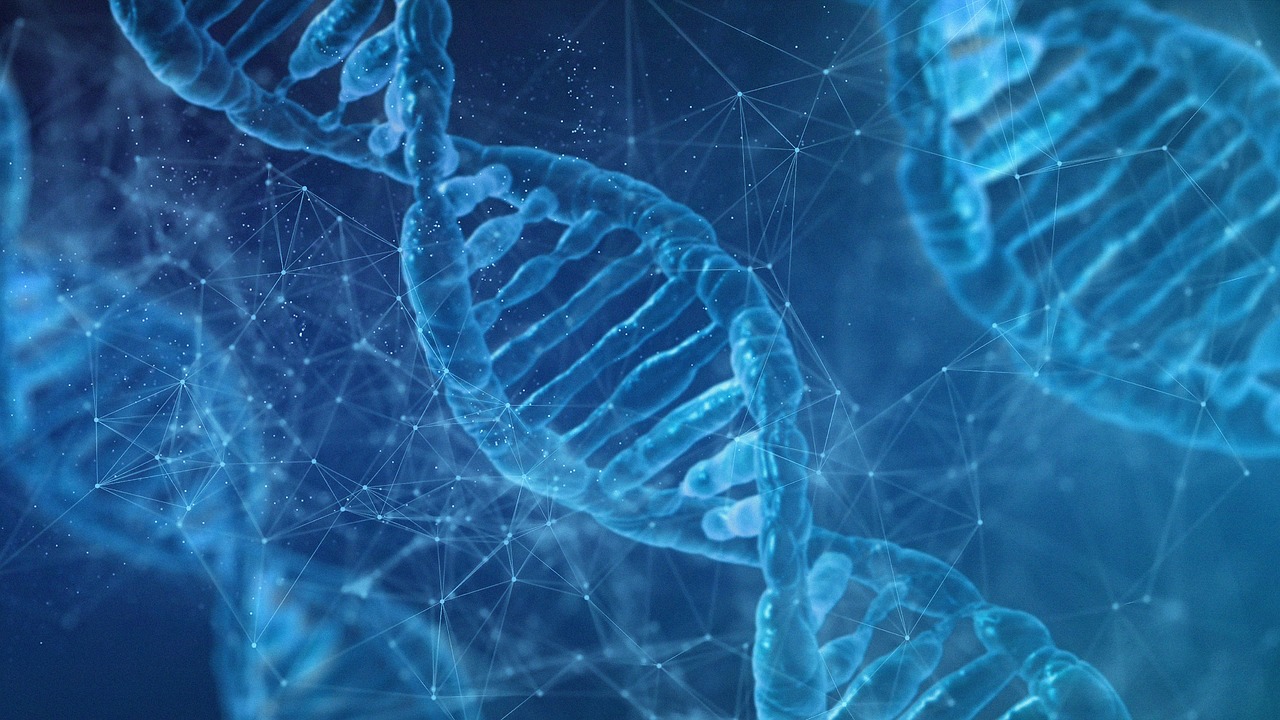
The Philosophical Foundations of Genetics
When we think about genetics, we often focus on the science—how genes work, how they are passed down, and how they influence traits. However, the philosophical foundations of genetics are equally important, shaping our understanding of what it means to be human and how we perceive our biological makeup. The roots of genetic science can be traced back to early philosophical inquiries about heredity, evolution, and the nature of life itself. Think of it as the roots of a tree; the visible branches and leaves represent the science, but the roots hold everything together, providing stability and nourishment.
Historically, philosophers like Aristotle and Darwin laid the groundwork for our understanding of genetics. Aristotle proposed ideas about inheritance that, although rudimentary, hinted at the complexities of genetic transmission. Fast forward to the 19th century, when Darwin's theory of evolution introduced the concept of natural selection, fundamentally altering our perception of heredity and adaptation. This philosophical shift encouraged scientists to explore the mechanisms behind these processes, leading to the birth of modern genetics.
As we delve deeper into the philosophical aspects, we find that questions about identity, morality, and the essence of being are intertwined with genetic science. For instance, if our genes significantly influence our behavior and personality, what does that say about our free will? Are we merely products of our genetic code, or do our experiences and choices play an equally crucial role? This tension between genetics and personal agency is a major theme in both philosophy and genetics.
Furthermore, the philosophical inquiry into genetics doesn't stop at mere understanding; it extends into the realm of ethics. The implications of genetic research and manipulation raise profound moral questions. For example, consider the idea of designer babies. Should we have the power to choose our children's traits? This question transcends scientific capability and enters the philosophical debate about the nature of desire and morality. The potential for genetic enhancement brings up ethical dilemmas that society must grapple with, making the philosophical foundations of genetics not just academic but critically relevant to our future.
In summary, the philosophical foundations of genetics serve as a lens through which we can examine our understanding of life, identity, and morality. As we continue to unlock the secrets of our genetic code, it is essential to remain aware of the philosophical implications of our discoveries. Just as a tree's growth is influenced by both its roots and the environment around it, our understanding of genetics will be shaped by the philosophical questions we ask and the ethical frameworks we establish.
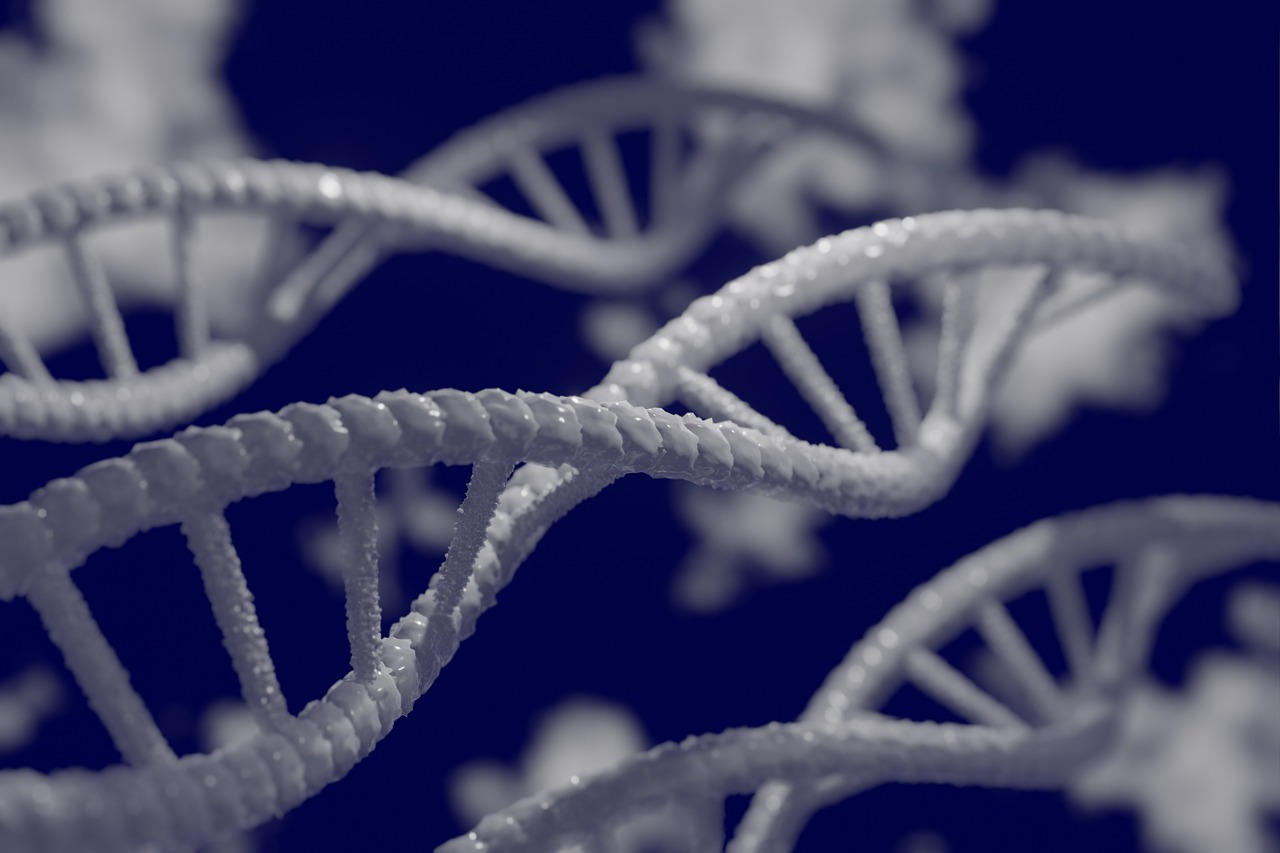
Ethics in Genetic Research
The field of genetics is not just a scientific endeavor; it is deeply intertwined with ethical considerations that challenge our moral compass. As we delve into the world of genetic research, we find ourselves grappling with questions that go beyond the laboratory. What does it mean to manipulate the very code of life? Are we playing God, or are we merely enhancing our understanding of biology? These questions are not just academic; they resonate with the very fabric of our society and our identities.
One of the most pressing ethical dilemmas in genetic research is the concept of informed consent. Imagine being part of a groundbreaking study, only to discover later that your genetic information was used in ways you never anticipated. Informed consent is not merely a formality; it is a fundamental right that ensures participants understand the implications of their involvement in research. This includes how their genetic data might be used, shared, or even sold. The transparency of this process is crucial, as it builds trust between researchers and participants, fostering a collaborative spirit in the quest for knowledge.
Obtaining informed consent is a multi-layered process. It goes beyond just signing a piece of paper; it requires clear communication and understanding. Researchers must ensure that participants are not only aware of the risks involved but also comprehend the potential benefits of the research. This is particularly important in genetic studies, where the implications of findings can extend beyond the individual to affect families and communities. The ethical responsibility lies in making sure that participants are fully informed and their autonomy respected.
As we navigate the landscape of genetic research, privacy concerns emerge as a significant issue. With the rise of big data and advanced analytics, the risk of genetic information being misused or leaked is higher than ever. Imagine a world where your genetic predispositions could be accessed by insurance companies or employers, potentially leading to discrimination. This scenario is not far-fetched; it underscores the urgent need for robust data protection measures. Researchers must prioritize the confidentiality of genetic data, implementing stringent protocols to safeguard participants' privacy.
The advent of technologies like CRISPR has revolutionized genetic research, yet it brings with it a host of ethical questions. The ability to edit genes raises profound moral implications. Are we ready to alter the human genome? What happens if these changes are passed down through generations? These questions force us to confront the potential consequences of our actions. Genetic editing could lead to unimaginable benefits, such as eradicating genetic diseases, but it also poses risks, including unintended mutations and the creation of "designer babies." The ethical landscape is fraught with complexity, requiring careful consideration of both the potential benefits and the risks involved.
In conclusion, the ethics of genetic research are not just a footnote in scientific discourse; they are central to the conversation. As we push the boundaries of what is possible, we must also reflect on the moral implications of our discoveries. Balancing innovation with ethics is crucial in ensuring that genetic research serves humanity positively and responsibly.
- What is informed consent in genetic research? Informed consent is the process by which participants are fully educated about the research, including its risks and benefits, and voluntarily agree to participate.
- Why are privacy concerns significant in genetic research? Privacy concerns are significant because genetic information is sensitive and can lead to discrimination if mishandled. Protecting this data is crucial for maintaining participants' trust.
- What are the ethical implications of genetic editing? The ethical implications include the potential for unintended consequences, such as genetic mutations, and the moral dilemmas surrounding the creation of designer babies.
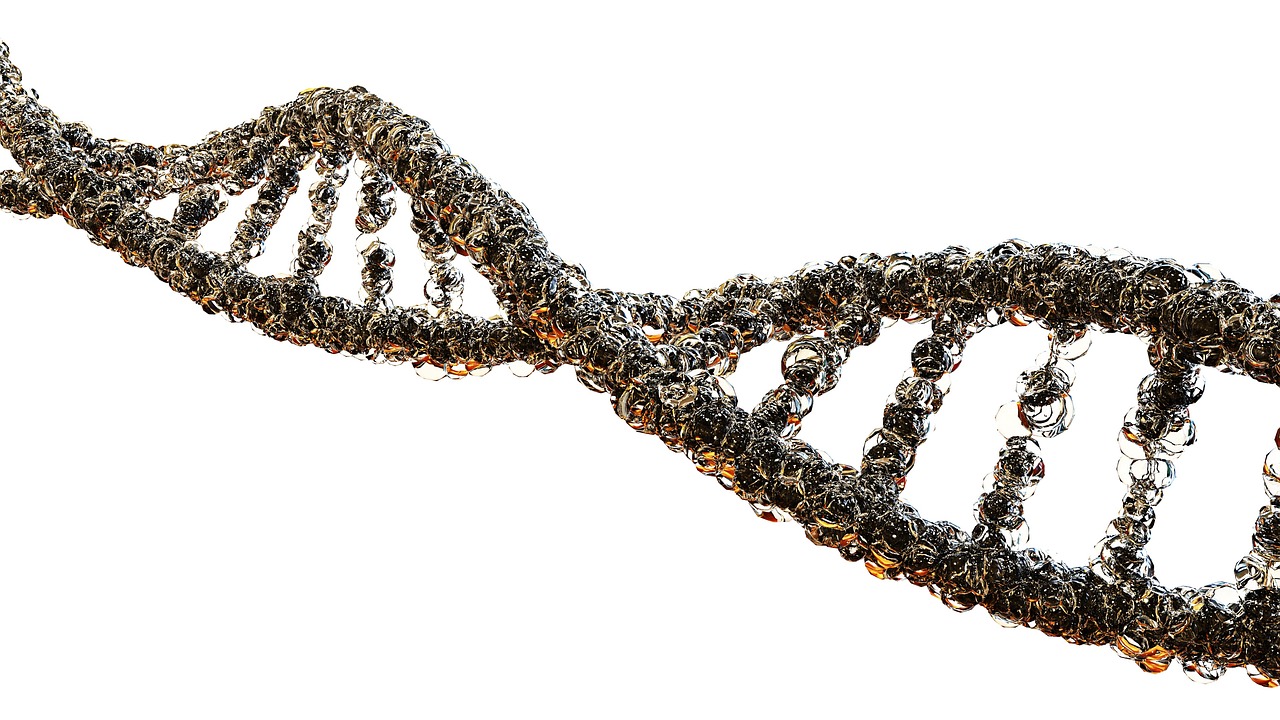
The Role of Consent
In the realm of genetic research, the concept of informed consent stands as a cornerstone of ethical practice. But what does it really mean to give consent, especially when it comes to something as intricate and personal as our genetic makeup? Imagine you're about to jump into a swimming pool. You wouldn't dive in without checking the water temperature or ensuring it's safe, right? Similarly, participants in genetic studies must be fully aware of what they're getting into before they agree to share their genetic information.
Informed consent is not just a formality; it is a process that ensures individuals understand the implications of their participation. This involves explaining the purpose of the research, the procedures involved, potential risks, and how their genetic data will be used. It’s a bit like signing a contract before making a big purchase—without understanding the terms, one could end up regretting their decision.
Moreover, the ethical implications of consent extend beyond the initial agreement. Once participants consent to share their genetic information, questions arise about how this data is stored, who has access to it, and how it might be used in the future. For instance, if a participant learns that they carry a gene linked to a hereditary disease, will this information be kept private, or could it be shared with insurance companies or employers? These concerns highlight the necessity for robust privacy protections and ongoing dialogue about the ethical use of genetic data.
One of the most pressing issues is the potential for genetic discrimination. If individuals are not adequately informed about how their genetic data might be used, they may unknowingly expose themselves to risks. This could lead to situations where people are judged or treated differently based on their genetic predispositions. For example, someone with a genetic marker for a certain condition might face challenges in securing employment or insurance. Therefore, ensuring that consent is informed and comprehensive is not just an ethical obligation; it’s a vital safeguard against discrimination.
To ensure that consent remains a meaningful and ethical practice in genetic research, several key principles should be upheld:
- Transparency: Researchers must provide clear and comprehensive information about the study and its implications.
- Voluntariness: Participation should always be voluntary, with no coercion or undue influence.
- Ongoing Communication: Researchers should maintain open lines of communication with participants, allowing them to ask questions or withdraw consent at any time.
In conclusion, the role of consent in genetic research cannot be overstated. It is a dynamic, ongoing process that requires careful consideration and respect for participants' autonomy. As we continue to navigate the complex landscape of genetics, prioritizing informed consent will not only uphold ethical standards but also foster trust between researchers and the communities they serve.
1. What is informed consent in genetic research?
Informed consent is the process through which participants are fully informed about the research, including its purpose, procedures, potential risks, and how their genetic data will be used, allowing them to make an educated decision about their participation.
2. Why is consent important in genetic studies?
Consent is crucial because it respects the autonomy of individuals and protects them from potential risks, including genetic discrimination and misuse of their genetic data.
3. Can participants withdraw their consent?
Yes, participants have the right to withdraw their consent at any time during the study, and researchers should facilitate this process without any penalties.
4. How is genetic data protected after consent is given?
Researchers must implement strict data protection measures to ensure that genetic information is stored securely and accessed only by authorized personnel, minimizing the risk of breaches of privacy.

Privacy Concerns
In the age of genetic research, where the secrets of our DNA are being unlocked like never before, loom large. Imagine for a moment that your genetic makeup is not just a personal attribute but a data point that can be shared, analyzed, and even exploited. The very thought sends shivers down the spine, doesn't it? As we delve deeper into the realm of genetics, the question arises: how do we protect our most intimate information from prying eyes? This is not merely a theoretical dilemma; it has real-world implications that affect individuals, families, and society as a whole.
At the heart of the issue lies the concept of genetic data privacy. When individuals participate in genetic research, they often provide samples that contain sensitive information about their health, ancestry, and predisposition to certain conditions. This data, if mishandled, can lead to a breach of privacy that is both unsettling and dangerous. For instance, imagine a scenario where genetic information is leaked, leading to discrimination by employers or insurers. The repercussions could be devastating, affecting not only the individual but also their family and community.
To illustrate the gravity of this issue, consider the following table that outlines potential risks associated with genetic data breaches:
| Risk | Description |
|---|---|
| Discrimination | Individuals may face biases in employment or insurance based on genetic predispositions. |
| Stigmatization | Genetic information can lead to social stigmas, affecting personal relationships and community standing. |
| Loss of Autonomy | Individuals may feel pressured to make health decisions based on genetic data rather than personal choice. |
Furthermore, the issue of informed consent cannot be overstated. Participants in genetic studies must be fully aware of how their data will be used, shared, and stored. This leads us to ask: are we truly informed when we consent? Often, the jargon and complexity of genetic research can obscure the reality of what we are agreeing to. It's imperative that researchers prioritize transparency, ensuring that individuals understand the potential risks and benefits associated with their participation.
As technology advances, the challenge of safeguarding genetic data becomes even more complex. With the rise of data-sharing platforms and genetic testing services, the potential for misuse of genetic information is ever-present. Companies may collect vast amounts of genetic data, often without stringent privacy protections in place. This raises a critical question: how do we balance the pursuit of scientific knowledge with the need for privacy? The answer lies in establishing robust ethical standards and regulations that prioritize the rights of individuals.
In conclusion, the privacy concerns surrounding genetic information are not just a matter of personal preference; they are a fundamental aspect of ethical research. As we navigate this uncharted territory, it is crucial to advocate for policies that protect individuals' rights while fostering an environment of transparency and trust. After all, our genetic makeup is a part of who we are, and safeguarding that information is essential for maintaining our dignity and autonomy in a rapidly evolving world.
- What is genetic data privacy? Genetic data privacy refers to the protection of individuals' genetic information from unauthorized access and misuse.
- Why is informed consent important in genetic research? Informed consent ensures that participants understand the implications of their involvement in research, including how their genetic data will be used.
- What are the risks of genetic data breaches? Risks include discrimination, stigmatization, and loss of personal autonomy regarding health decisions.
- How can individuals protect their genetic privacy? Individuals can protect their genetic privacy by being cautious about sharing genetic information and understanding the privacy policies of genetic testing services.

Implications of Genetic Editing
As we stand on the precipice of a new era in genetic science, the advent of technologies like CRISPR has opened up a Pandora's box of possibilities. Genetic editing allows us to modify DNA with unprecedented precision, but it also raises a myriad of ethical, social, and philosophical questions that we must grapple with. What does it mean to play God? Are we ready to bear the consequences of our alterations? These are not just rhetorical questions; they are fundamental inquiries that challenge our very understanding of life and identity.
One of the most pressing implications of genetic editing is the potential for designer babies. Imagine a world where parents can choose the eye color, intelligence quotient, or even athletic prowess of their children. While this may sound like a futuristic fantasy, it is increasingly becoming a reality. The ethical ramifications of such choices are profound. Are we enhancing human potential, or are we creating new forms of inequality? The ability to edit genes could lead to a societal divide between those who can afford such technologies and those who cannot, further entrenching existing disparities.
Moreover, the question of unintended consequences looms large. Genetic editing is not an exact science; it involves complex interactions within the genome that we do not yet fully understand. Editing one gene could inadvertently affect others, leading to unforeseen health issues or genetic disorders. This unpredictability raises concerns about the long-term effects on both individuals and the human gene pool. In essence, are we equipped to handle the responsibility that comes with this power?
Another critical aspect to consider is the implications for human identity. Our genetic makeup is often seen as a core component of who we are. If we start altering our genes, how does that affect our sense of self? Will we still be the same person if significant portions of our DNA have been edited? This question touches on deep philosophical issues regarding what it means to be human. As we edit our genes, we may also be editing our very essence.
In addition, the potential for genetic editing to be used for nefarious purposes cannot be ignored. The technology could be weaponized, leading to bioweapons or other malicious applications. The ethical framework surrounding genetic editing must, therefore, include safeguards against misuse. Policymakers, scientists, and ethicists need to collaborate to establish guidelines that ensure genetic editing is used responsibly and for the greater good.
In summary, while genetic editing holds incredible promise for treating diseases and enhancing human capabilities, it also poses significant ethical dilemmas and risks. As we navigate this uncharted territory, it is crucial to engage in open discussions about the implications of our choices. The future of genetic editing will not only shape our health and abilities but will also redefine our understanding of humanity itself.
- What is genetic editing? Genetic editing refers to the process of altering an organism's DNA to achieve desired traits or eliminate undesirable ones.
- What are the ethical concerns surrounding genetic editing? Some ethical concerns include the potential for designer babies, unintended consequences, and the implications for human identity.
- How might genetic editing affect social inequality? Access to genetic editing technologies may be limited to wealthier individuals, potentially creating a divide between those who can afford enhancements and those who cannot.
- What safeguards exist to prevent the misuse of genetic editing? Policymakers and ethicists are working to establish guidelines and regulations to ensure responsible use of genetic editing technologies.
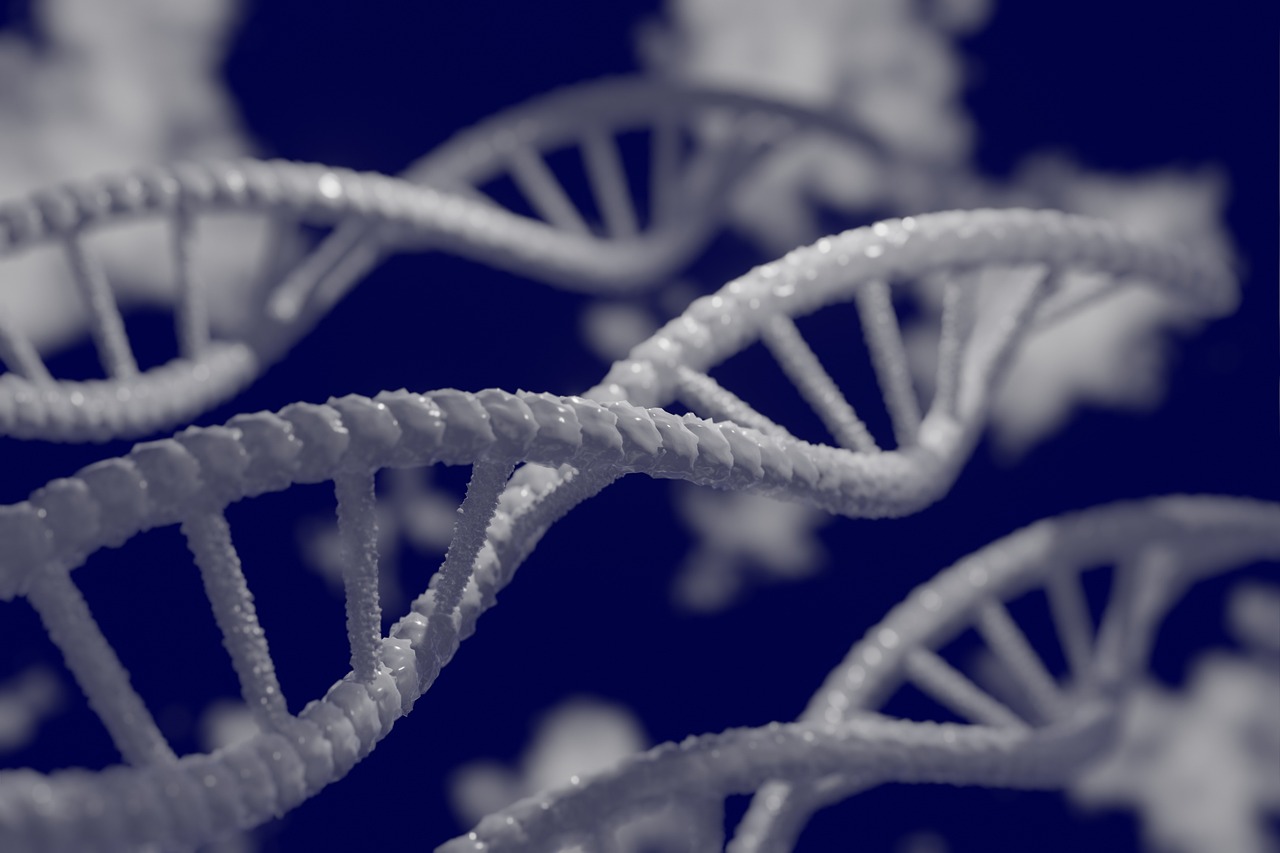
Philosophical Perspectives on Identity
When we talk about identity, we often think of it as a fixed concept, something that defines who we are. However, philosophy challenges this notion by suggesting that identity is more fluid and complex than we might initially believe. In the realm of genetics, this complexity grows exponentially as we consider how our genetic makeup influences our sense of self. Are we merely the sum of our genes, or is there more to our identity than what is encoded in our DNA?
Philosophers have long debated the essence of identity, and their insights can illuminate our understanding of how genetics plays a role in shaping who we are. For instance, the concept of the "self" has been explored through various lenses, including existentialism, which posits that identity is shaped through choices and experiences rather than predetermined factors. This leads us to question: if our genetic predispositions influence our choices, to what extent do they shape our identity?
Consider the idea of genetic predisposition to certain behaviors or traits. Imagine two individuals with a similar genetic background but vastly different life experiences. One might grow up in a nurturing environment that encourages creativity, while the other may face adversity that stifles their potential. Herein lies the philosophical dilemma: is identity dictated by our genes, or is it molded by our experiences? This interplay between nature and nurture is a central theme in discussions of identity.
Furthermore, the rise of genetic testing has introduced a new layer to the identity conversation. With access to information about our genetic heritage, individuals are increasingly confronted with questions about their ancestry and how it shapes their identity. Are we defined by our genetic lineage, or do we have the agency to construct our identities independently of our genetic background? The implications are profound, as they challenge traditional notions of identity rooted solely in biological factors.
In light of these discussions, it’s essential to consider how societal perceptions of genetics can influence personal identity. For instance, if society views certain genetic traits as superior or inferior, individuals may internalize these beliefs, impacting their self-image and societal roles. This reflects the philosophical perspective that identity is not only a personal construct but also a social one, shaped by the cultural narratives surrounding genetics.
Ultimately, the philosophical perspectives on identity in the context of genetics reveal a rich tapestry of thought. They invite us to ponder the very nature of who we are and how much of that is dictated by our biology versus our lived experiences. As we navigate the complexities of genetic information, we must remain aware of the profound implications it holds for our understanding of identity.
- How does genetics influence our identity? Genetics can predispose us to certain traits and behaviors, but our experiences and choices also play a significant role in shaping who we are.
- Can identity be changed? Yes, identity is not fixed; it can evolve based on new experiences, insights, and personal growth.
- What role does society play in shaping identity? Society influences identity through cultural narratives and social norms, which can affect how individuals perceive themselves and are perceived by others.

Determinism vs. Free Will
The age-old debate between determinism and free will is a captivating topic that intertwines with the advancements in genetic science. At its core, this discussion revolves around whether our choices and behaviors are predetermined by our genetic makeup or if we possess the autonomy to shape our destinies. Imagine for a moment that you are a puppet on strings, each string representing a different gene, pulling you in various directions. Is it the puppet master (your genetics) that dictates your actions, or do you have the ability to cut those strings and dance to your own tune?
Determinists argue that our genetic predispositions play a significant role in shaping who we are, influencing everything from our personality traits to our likelihood of developing certain behaviors. For instance, studies have shown that genetics can contribute to conditions like depression or anxiety, suggesting that some individuals may be more susceptible to these issues due to their genetic makeup. This perspective raises profound questions: If our genes dictate our actions, can we truly hold individuals accountable for their behavior? Are we merely products of our DNA?
On the flip side, proponents of free will assert that while genetics may provide a framework, it does not ultimately control our choices. They argue that humans have the capacity to reflect, make conscious decisions, and exercise self-control. This perspective is akin to being the director of your own life movie, where you can choose the plot twists and character developments despite the initial script written by your genes.
To further illustrate this dichotomy, consider the following points:
- Genetic Influence: Certain genes may predispose individuals to risk-taking behaviors, but environmental factors and personal experiences can significantly alter outcomes.
- Environmental Impact: A nurturing environment can help mitigate genetic predispositions, showcasing the power of upbringing and social context.
- Personal Responsibility: The belief in free will encourages individuals to take responsibility for their actions, promoting a sense of agency and empowerment.
The implications of this debate extend beyond individual choices; they permeate societal attitudes and policies. For example, if genetic determinism is widely accepted, it may lead to a fatalistic view of human behavior, potentially justifying discrimination against those deemed genetically inferior. Conversely, a strong belief in free will can foster a culture of personal accountability and resilience, encouraging individuals to strive for self-improvement regardless of their genetic predispositions.
As we delve deeper into the realms of genetics and philosophy, it's essential to recognize that the truth may lie somewhere in between. Perhaps our genes set the stage, but we are the actors who can choose how to perform. This ongoing dialogue between determinism and free will not only shapes our understanding of human behavior but also influences ethical considerations in genetic research and the broader implications for society.
- Can genetics determine my personality? While genetics can influence personality traits, environmental factors and personal experiences also play a crucial role in shaping who you are.
- Is free will an illusion? Many philosophers argue that while our choices may be influenced by genetics, we still possess the ability to make decisions and change our paths.
- How does this debate affect genetic research? Understanding the balance between determinism and free will is vital for ethical considerations in genetic research, especially regarding accountability and societal attitudes.
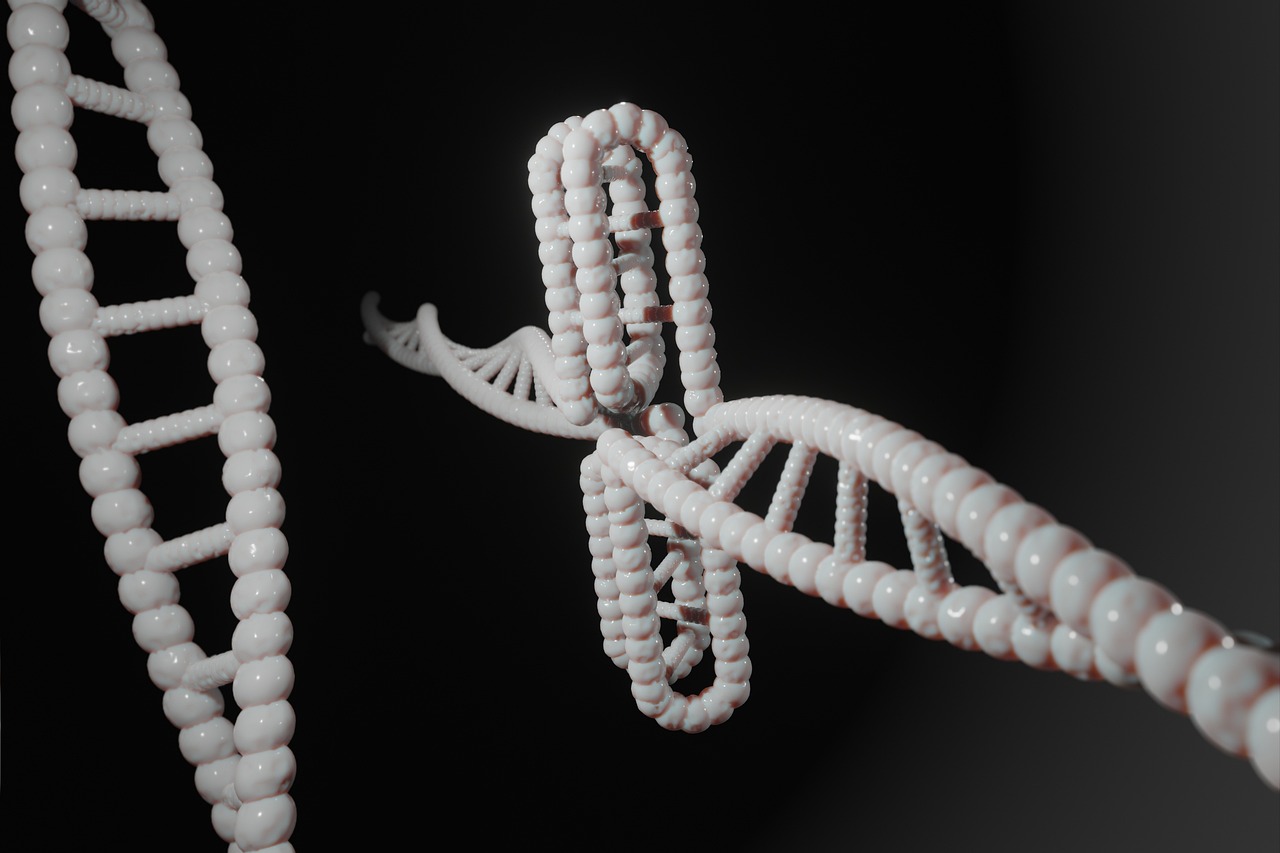
Social Implications of Genetic Determinism
Genetic determinism is a theory that suggests our genes are the primary determinants of our traits, behaviors, and even destinies. This perspective can significantly shape societal attitudes, leading to a variety of implications that ripple through our communities. When people believe that genetics solely dictates who we are, it can foster a sense of inevitability around certain behaviors and characteristics. For instance, if someone is labeled as having a "genetic predisposition" to aggression or addiction, society may unfairly judge their actions as being beyond their control.
Moreover, this belief can create a stigma around individuals who are perceived as being genetically predisposed to certain conditions or behaviors. Imagine a world where people are constantly viewed through the lens of their genetic makeup; it can lead to discrimination and social exclusion. The danger lies in the oversimplification of human behavior and identity. Just because a person has a genetic marker associated with a particular trait doesn't mean they will inevitably express that trait. This misunderstanding can lead to harmful stereotypes and societal divisions.
To illustrate this point, consider the following examples:
- Employment Discrimination: Employers might make hiring decisions based on perceived genetic traits, leading to unfair treatment of candidates.
- Healthcare Bias: Patients with genetic predispositions might receive less attention or care, as healthcare providers may assume they are less likely to change their health outcomes.
- Social Isolation: Individuals identified as having certain genetic traits may face social ostracism, leading to mental health challenges.
Additionally, the belief in genetic determinism can affect public policy and funding. If policymakers view certain behaviors as genetically driven, they may prioritize funding for genetic research over social programs that address environmental factors influencing behavior. This could result in a lack of support for community-based interventions that could help individuals make positive changes in their lives.
Furthermore, the implications extend to how we view education and personal responsibility. If we accept that genetics plays a significant role in determining intelligence or learning capabilities, we might inadvertently lower expectations for certain groups of people. This can perpetuate a cycle of disadvantage, where individuals are not given the opportunities they deserve based on their potential, but rather pigeonholed by their genetic background.
In conclusion, while genetics undoubtedly plays a role in shaping who we are, it is crucial to remember that it is not the sole factor. Understanding the social implications of genetic determinism allows us to foster a more inclusive society that values individual potential and personal responsibility, rather than reducing people to their genetic codes. A balanced perspective that integrates both genetic and environmental influences will lead to a more equitable and understanding society.
- What is genetic determinism? Genetic determinism is the idea that genes are the primary influence on human behavior and traits.
- How does genetic determinism affect social attitudes? It can lead to stigma, discrimination, and a lack of personal accountability, as people may be judged solely based on their genetic makeup.
- Can genetics determine intelligence? While genetics can influence cognitive abilities, environmental factors, education, and personal effort also play significant roles.
- What can be done to counteract the negative effects of genetic determinism? Promoting a holistic understanding of human behavior that includes both genetics and environment can help mitigate these effects.
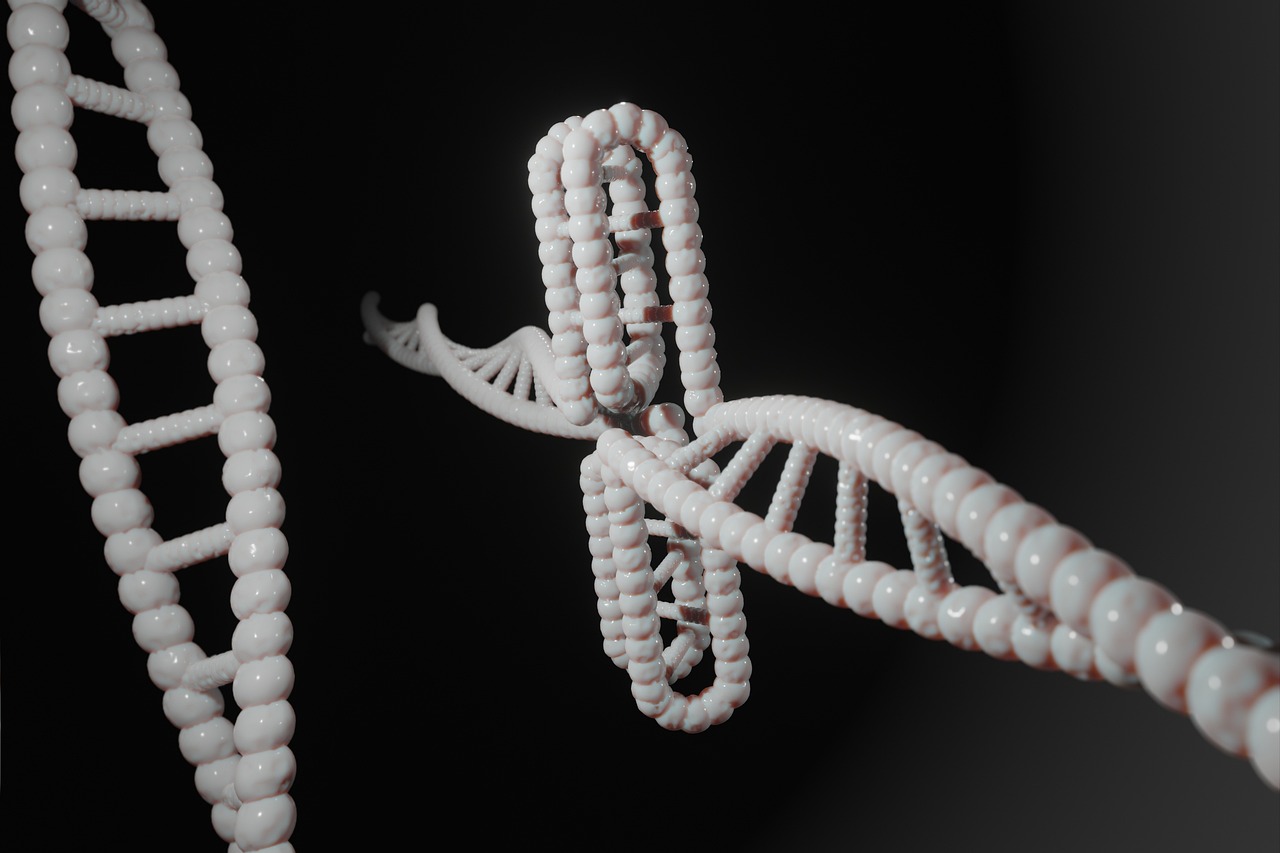
The Future of Genetic Philosophy
As we stand on the brink of a new era in genetic science, the intersection of genetics and philosophy is more crucial than ever. The rapid advancements in technologies like CRISPR and gene therapy are not just reshaping our understanding of biology; they are also challenging our ethical frameworks and philosophical beliefs. Imagine a world where we can not only read the genetic code but also rewrite it. What does that mean for our identity, our choices, and the very essence of what it means to be human?
One of the most pressing questions we face is how these advancements will influence our perceptions of morality and ethics. Will we embrace the power to create "designer babies," or will we recoil at the thought of playing God? This dilemma highlights the need for a robust philosophical dialogue surrounding genetic manipulation. It’s not just about the science; it’s about the implications of that science on society.
In the near future, we may witness a paradigm shift in how we approach genetic information. As genetic data becomes more accessible, the philosophical implications of privacy and consent will come to the forefront. Consider this: if your genetic predispositions could be shared without your consent, how would that affect your identity? Would you feel like a mere collection of genes, or would you still see yourself as a unique individual? These questions are not just theoretical; they have real-world consequences.
Moreover, as we delve deeper into the realm of genetic editing, we must grapple with the concept of responsibility. If we have the power to alter our genes, who is accountable for the outcomes? The individuals making these decisions? The scientists developing the technologies? Or perhaps society at large? This is where philosophy steps in, urging us to consider the moral weight of our choices.
As we look ahead, we can anticipate several key areas where genetic philosophy will evolve:
- Identity and Self-Perception: The more we learn about genetics, the more we may question our identities. Are we defined by our genes, or do our experiences shape who we are?
- Ethical Frameworks: New ethical guidelines will need to be established to navigate the complexities of genetic manipulation and its societal implications.
- Societal Impact: The way society views genetic differences may shift dramatically, affecting everything from healthcare to social justice.
In summary, the future of genetic philosophy is not just about understanding genetics; it’s about understanding ourselves. As we push the boundaries of what’s possible, we must also reflect on what it means to be human in a world where our genetic makeup can be modified. The philosophical questions raised by these advancements will shape our ethical landscapes and influence our societal norms for generations to come.
Q: How will advancements in genetics affect our understanding of identity?
A: As genetic science evolves, it challenges traditional notions of identity, prompting us to reconsider how much of who we are is determined by our genes versus our experiences.
Q: What ethical concerns arise from genetic editing technologies?
A: Ethical concerns include the potential for misuse of technology, the implications of creating "designer babies," and issues surrounding consent and privacy.
Q: How can philosophy contribute to discussions about genetics?
A: Philosophy provides a framework for examining the moral implications of genetic advancements, helping society navigate complex ethical dilemmas and shaping public policy.
Frequently Asked Questions
- How does philosophy influence our understanding of genetics?
Philosophy provides a framework for interpreting genetic science, shaping our perspectives on ethics, identity, and human behavior. It encourages us to ask deeper questions about what it means to be human and how our genetic makeup influences our lives.
- What ethical dilemmas arise in genetic research?
Genetic research often presents moral challenges, such as the implications of genetic manipulation, consent issues, and the potential for designer babies. These dilemmas force us to consider the societal impact of our scientific advancements.
- Why is informed consent important in genetic studies?
Informed consent ensures that participants understand the nature of the research and the implications of their genetic information. It's crucial for maintaining trust and protecting individuals’ rights in the context of sensitive genetic data.
- What are the privacy concerns related to genetic data?
As genetic data becomes more accessible, protecting individuals' privacy is a growing concern. The potential misuse of genetic information can lead to discrimination and breaches of confidentiality, making it essential to establish robust privacy protections.
- What are the implications of genetic editing technologies like CRISPR?
Technologies like CRISPR raise significant ethical questions about the morality of altering human genes. The potential for unintended consequences and the long-term effects on future generations must be carefully considered before widespread adoption.
- How does genetics affect our identity?
Genetic information plays a crucial role in shaping our personal and social identities. It influences how we see ourselves and how society perceives us, raising important questions about the relationship between genetics and identity.
- What is the debate between genetic determinism and free will?
The debate centers on whether our genetics dictate our behavior and choices or if we have the freedom to make our own decisions. Philosophical arguments help illuminate the complexities of this ongoing discussion.
- What are the social implications of believing in genetic determinism?
Believing in genetic determinism can lead to stereotypes and biases, affecting societal attitudes towards individuals based on their genetic makeup. This perspective can influence policies and social interactions in significant ways.
- What does the future hold for genetic philosophy?
As genetic science continues to evolve, new philosophical questions will emerge, prompting us to reconsider our ethical frameworks and societal norms. The future of genetic philosophy will likely explore the implications of advancements we cannot yet fully comprehend.



















